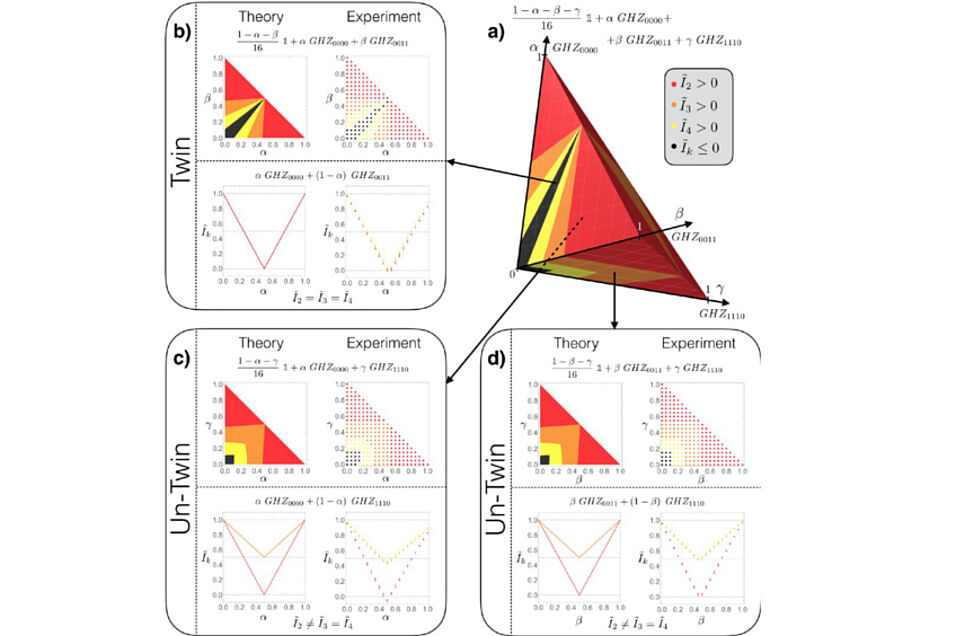For four qubits (=two-level systems) one can find a basis of 16 GHZ states (GHZ...Greenberger-Horne-Zeilinger). Surprisingly, choosing one GHZ state one always finds a twin state such that an equal mixing results in a separable state, the genuinely multipartite entanglement property is fully lost. If, however, one mixes with another GHZ state in the basis set, the resulting state does not lose all entanglement properties. This has been observed with two physical photons entangled in their polarisation and angular momentum degree of freedom (published in [1])
This system of two physical photons can be considered as a four particles system with two degrees of freedoms (=4 qubits). Mixing GHZ states unmasks different entanglement features based on their particular local geometrical connectedness. In detail, the geometry of GHZ basis states is described by ``Schön ist so ein Ringelspiel’’) (Merry Go Round) [famous Viennese song by Hermann Leopoldi about the pleasure of using the Carousel in the Viennese Prater]. Exploiting these local geometrical relations provides a toolbox for generating specific types of multipartite entanglement, each providing different benefits in outperforming classical devices. Controlling the different types of entanglement properties of the finally generated state will be the key for novel applications.
[1] G. Carvacho, F. Graffitti, V. D’Ambrosio, B. C. Hiesmayr & F. Sciarrino, Scientific Reports 7, Article number: 13265 (2017); www.nature.com/articles/s41598-017-13124-6

